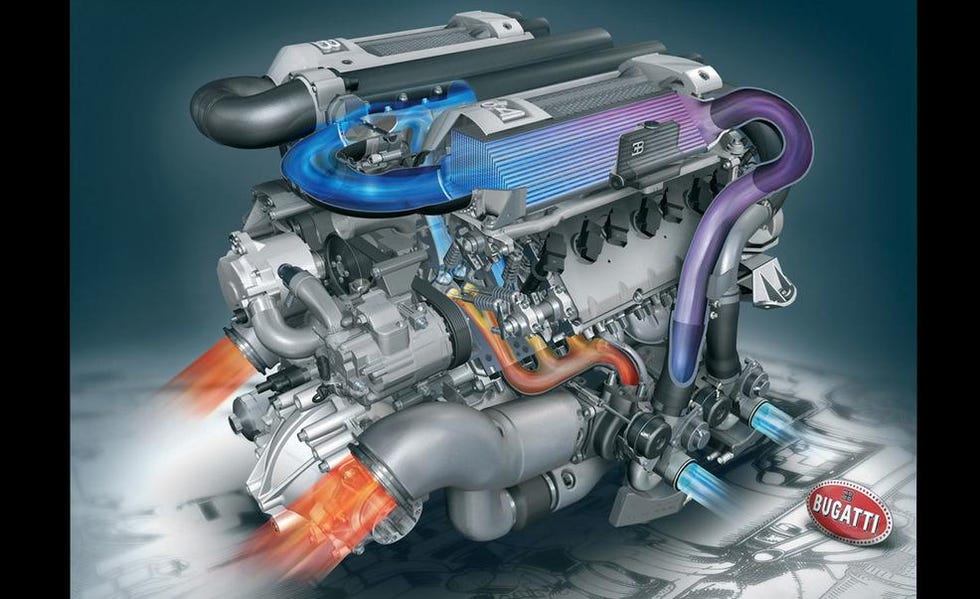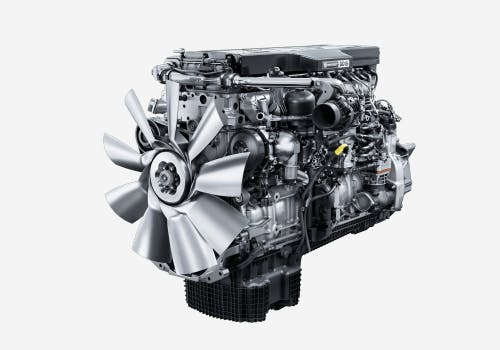Explore a Wide Variety of Engines for each Automobile and Function
The automotive landscape is significantly complicated, with a varied array of engine types created to satisfy particular performance and performance needs throughout different vehicle groups. Additionally, durable engines serve the needs of work lorries, while environment-friendly options are acquiring grip in the pursuit of lasting transport.
Kinds of Automotive Engines
Automotive engines can be classified into a number of unique types, each created to meet certain performance and performance requirements. The most usual classifications consist of internal combustion engines, electric engines, and hybrid systems.

Electric engines, on the other hand, operate on electrical power kept in batteries, supplying instant torque and absolutely no emissions. These engines are becoming significantly popular because of innovations in battery modern technology and the growing emphasis on sustainability.
Crossbreed systems incorporate both internal burning and electrical engines, enabling automobiles to maximize fuel effectiveness and reduce emissions by perfectly switching between source of power. Each engine kind presents its disadvantages and advantages, affecting aspects such as car style, planned usage, and market need. Recognizing these differences is vital for suppliers and customers alike when selecting the proper engine for their certain needs.
Efficiency Engines for Sports Cars
Efficiency engines for cars are particularly crafted to supply boosted agility, power, and speed, establishing them in addition to standard automotive engines. These engines typically utilize sophisticated innovations such as turbocharging, supercharging, and variable valve timing to take full advantage of efficiency and responsiveness.
Generally, performance engines are developed with higher compression proportions, which permit higher energy extraction from gas. This causes excellent horsepower and torque numbers, enabling quick velocity and higher leading speeds. The light-weight materials made use of in these engines, such as light weight aluminum and carbon fiber, contribute to minimized general vehicle weight, boosting handling and maneuverability.
Engine arrangements like V6, V8, and also hybrid systems prevail in efficiency sports vehicles, each offering special advantages in terms of power delivery and driving characteristics. The tuning of these engines is additionally vital; numerous suppliers optimize the engine monitoring systems to provide an exhilarating driving experience, often consisting of sport settings that readjust throttle reaction and equipment shifts.
Reliable Engines for Daily Commuters
In the realm of everyday commuting, efficient engines play a vital role in enhancing gas economic climate and decreasing emissions while supplying reliable performance. As city populaces grow and environmental worries magnify, the need for lorries equipped with effective powertrains has risen.
Modern engines designed for everyday travelers frequently incorporate modern technologies such as turbocharging, direct fuel shot, and hybrid systems. Turbocharging boosts engine efficiency forcibly more air into the burning chamber, enabling smaller sized, lighter engines that do not jeopardize power output. Direct fuel injection enhances gas atomization, resulting in better burning and raised helpful hints performance.
Crossbreed engines, incorporating internal burning with electric power, additional enhance gas economy, specifically in stop-and-go website traffic, where traditional engines can struggle with ineffectiveness. Electric motors help throughout acceleration and can run individually at low speeds, minimizing total gas intake.
Moreover, developments in engine administration systems and lightweight products add substantially to effective engine style. By focusing on performance, resilience, and environmental sustainability, suppliers proceed to deliver engines that not just fulfill the demands of everyday commuting however additionally straighten with worldwide efforts to minimize carbon impacts.
Heavy-Duty Engines for Job Vehicles
Heavy-duty engines for work cars are consistently crafted to provide outstanding torque and integrity under requiring problems. These engines are developed to carry out in environments where standard engines may fail, such as building websites, logging operations, and farming settings. The key focus of heavy-duty engines is their ability to create high levels of power while keeping sturdiness over expanded durations of procedure.
Normally, durable engines make use of sophisticated products and durable building techniques to stand up to the rigors of heavy work. Functions such as strengthened cyndrical tube blocks, improved air conditioning systems, and advanced gas injection modern technologies contribute to their performance. These engines often run at lower RPMs, which aids to optimize fuel performance while supplying the essential power for hauling and lugging.
Along with mechanical robustness, durable engines are commonly furnished with innovative electronic control systems (ECUs) that handle efficiency, exhausts, and diagnostics. This combination enables better surveillance and maintenance, making certain that job automobiles remain reliable and operational.
Inevitably, durable engines are an essential component in the productivity of various sectors, supplying the needed power and reliability to deal with the toughest of jobs.
Eco-Friendly Engine Options
The growing emphasis on sustainability has caused the growth of eco-friendly engine choices that focus on minimized discharges and enhanced fuel performance. These engines are made to minimize the ecological influence of automobiles while still delivering the performance and reliability expected by consumers.
Amongst one of the most significant eco-friendly alternatives are hybrid and electric engines. Hybrid engines combine conventional internal combustion engines with electrical propulsion, permitting for lowered fuel usage and reduced greenhouse gas discharges. Electric engines, on the other hand, operate entirely on battery power, generating absolutely no tailpipe exhausts and adding to cleaner air high quality.
An check out here additional encouraging advancement is the improvement of biofuel engines, which make use of renewable resources, such as plant products, to power lorries (Engines For Africa). By utilizing biofuels, these engines can minimize dependence on fossil fuels and reduced overall carbon footprints

As the automotive market advances, environmentally friendly engine alternatives will play a critical function in driving the change towards more lasting transportation solutions.
Final Thought
From high-performance engines that enhance sports auto capabilities to effective designs focusing on Learn More gas economic situation for daily commuters, each type offers a certain function. Sturdy engines provide to durable job vehicles, while green options, such as electric and biofuel engines, promote sustainable transportation.
